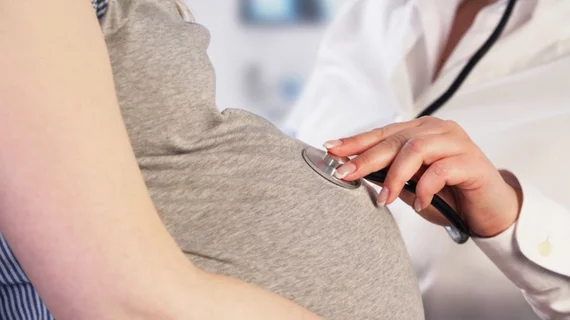Heart transplant recipients face increased risk of maternal complications when giving birth
The risk of severe maternal morbidity (SMM), defined by the Centers for Disease Control and Prevention (CDC) as “unexpected outcomes of labor and delivery that result in significant short- or long-term consequences to a woman’s health,” increases significantly when women have undergone a heart transplant (HT), according to new research published in JACC: Heart Failure.[1]
“With HT recipients living longer, healthier lives, obstetric and cardiovascular providers are increasingly asked about the implications of HT on maternal and fetal outcomes of pregnancy by patients contemplating pregnancy or presenting during pregnancy,” wrote first author Amanda M. Craig, MD, an assistant professor of obstetrics and gynecology with Duke University School of Medicine, and colleagues. “However, the available data are limited.”
Craig et al. explored data from the Nationwide Readmissions Database, tracking more than 19,000 deliveries in the United States from 2010 to 2020. A total of 105 of those deliveries were HT recipients.
SMM covers dozens of different outcomes, including acute myocardial infarction (AMI), acute renal failure, eclampsia, heart failure, sepsis, shock, sickle cell disease and hysterectomy. Overall, the SMM rate among HT recipients was 24.8%, much higher than the 1.7% seen among women with no history of a HT. Cardiovascular SMM, a composite outcome that included AMI, aortic aneurysm, cardiac arrest/ventricular fibrillation, cardioversion, acute heart failure and preterm birth, was seen in 7.3% of HT recipients and 0.12% of women with no history of a HT.
The preterm birth rate (43.3% vs. 8.2%) and readmission rate after one year (26.9% vs. 3.8%) were also much higher among HT recipients, researchers added.
“The risk of SMM for HT recipients has not been previously described,” the authors wrote. “The knowledge gained from this study and these clinical findings can aid providers in their continued counseling of these patients pre- or post-HT, in the preconception period, or during pregnancy.”
Another key takeaway was that cesarean deliveries were seen in 55.2% of HT recipients and 32.8% of women with no history of a HT. Most industry guidelines indicate that vaginal births are acceptable for women with a history of heart issues, leaving the research team at a bit of a loss when it comes to explaining this finding.
“Data were not available regarding indication for cesarean (ie, elective due to maternal HT history vs indicated for maternal or fetal conditions), so it is unclear if this increase was strictly caused by history of HT vs complications of pregnancy, but is a notable point to acknowledge with these patients,” Craig and colleagues wrote.
Click here to read the full study. Additional CDC information about SMM is available here.

